By Robert Tuttle
God’s word paints a very different picture of what the Christian life is to look like. For example, Hebrews 10:24-25 tells us not only are we to assemble together (which most Christians do at least once a week), but also we are to “consider one another in order to stir up love and good works.”
“And let us consider one another in order to stir up love and good works, not forsaking the assembling of ourselves together, as is the manner of some, but exhorting one another, and so much the more as you see the Day approaching.” (Hebrews 10:24-25 NKJV)
“Bear one another’s burdens, and so fulfill the law of Christ.”
“with all lowliness and gentleness, with longsuffering, bearing with one another in love,”
“bearing with one another, and forgiving one another, if anyone has a complaint against another; even as Christ forgave you, so you also must do.”
“Let nothing be done through selfish ambition or conceit, but in lowliness of mind let each esteem others better than himself. Let each of you look out not only for his own interests, but also for the interests of others.”
That this same teaching is repeated over and over again throughout Scripture (such as in 1 Peter 4:8-10; 1 John 3:17-18; 1 Corinthians 12:24-27) demonstrates the importance of this teaching. In fact, it is an extension – if not the foundation – of the second greatest commandment, to love our neighbor as ourselves (Matthew 22:35–40; Mark 12:28–34; Luke 10:27). For how can we love our neighbor if we do not love one another? And it was Jesus who said that our love for other Christians would be a defining characteristic of Christianity: “A new commandment I give to you, that you love one another; as I have loved you, that you also love one another. By this all will know that you are my disciples, if you have love for one another.” (John 13:34-35 NKJV)
When we examine the early Church, the first Christians, we see that they put this into practice as they actively bore each other’s burdens.
“42 And they continued steadfastly in the apostles’ doctrine and fellowship, in the breaking of bread, and in prayers. 43 Then fear came upon every soul, and many wonders and signs were done through the apostles. 44 Now all who believed were together, and had all things in common, 45 and sold their possessions and goods, and divided them among all, as anyone had need. 46 So continuing daily with one accord in the temple, and breaking bread from house to house, they ate their food with gladness and simplicity of heart, 47 praising God and having favor with all the people. And the Lord added to the church daily those who were being saved.” (Acts 2:42-47 NKJV)
“32 Now the multitude of those who believed were of one heart and one soul; neither did anyone say that any of the things he possessed was his own, but they had all things in common. 33 And with great power the apostles gave witness to the resurrection of the Lord Jesus. And great grace was upon them all. 34 Nor was there anyone among them who lacked; for all who were possessors of lands or houses sold them, and brought the proceeds of the things that were sold, 35 and laid them at the apostles’ feet; and they distributed to each as anyone had need. 36 And Joses, who was also named Barnabas by the apostles (which is translated Son of Encouragement), a Levite of the country of Cyprus, 37 having land, sold it, and brought the money and laid it at the apostles’ feet.” (Acts 4:32-37 NKJV)
“For how good and how pleasant it is for brethren to dwell together in unity!” (Psalm 133:1 NKJV)
This communality of the Church is an essential aspect of the Christian life, and one every Christian should take very seriously, especially in light of Matthew 25:31–46, paying particular attention to verses 41-46,
“41 Then He will also say to those on the left hand, ‘Depart from Me, you cursed, into the everlasting fire prepared for the devil and his angels: 42 for I was hungry and you gave Me no food; I was thirsty and you gave Me no drink; 43 I was a stranger and you did not take Me in, naked and you did not clothe Me, sick and in prison and you did not visit Me.’ 44 “Then they also will answer Him, saying, ‘Lord, when did we see You hungry or thirsty or a stranger or naked or sick or in prison, and did not minister to You?’ 45 Then He will answer them, saying, ‘Assuredly, I say to you, inasmuch as you did not do it to one of the least of these, you did not do it to Me.’ 46 And these will go away into everlasting punishment, but the righteous into eternal life.”
For those who do not care about or for others in the Church; for those who ignore the needs of their Christian brothers and sisters, for those who don’t visit or call or otherwise check on the well-being of their Christian brothers and sisters, these should be terrifying words indeed.



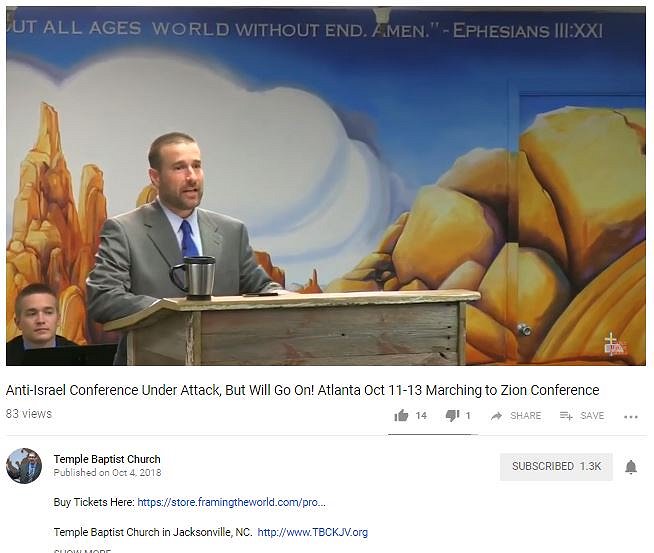
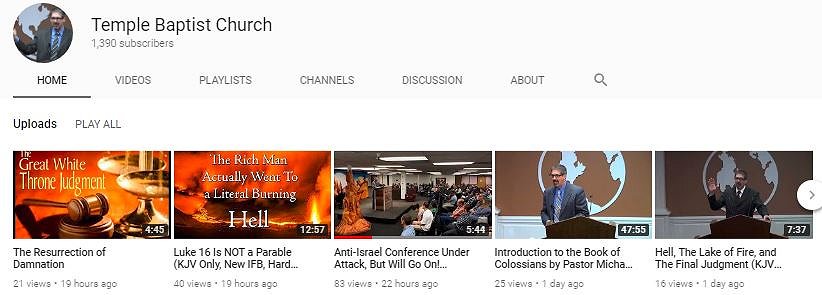

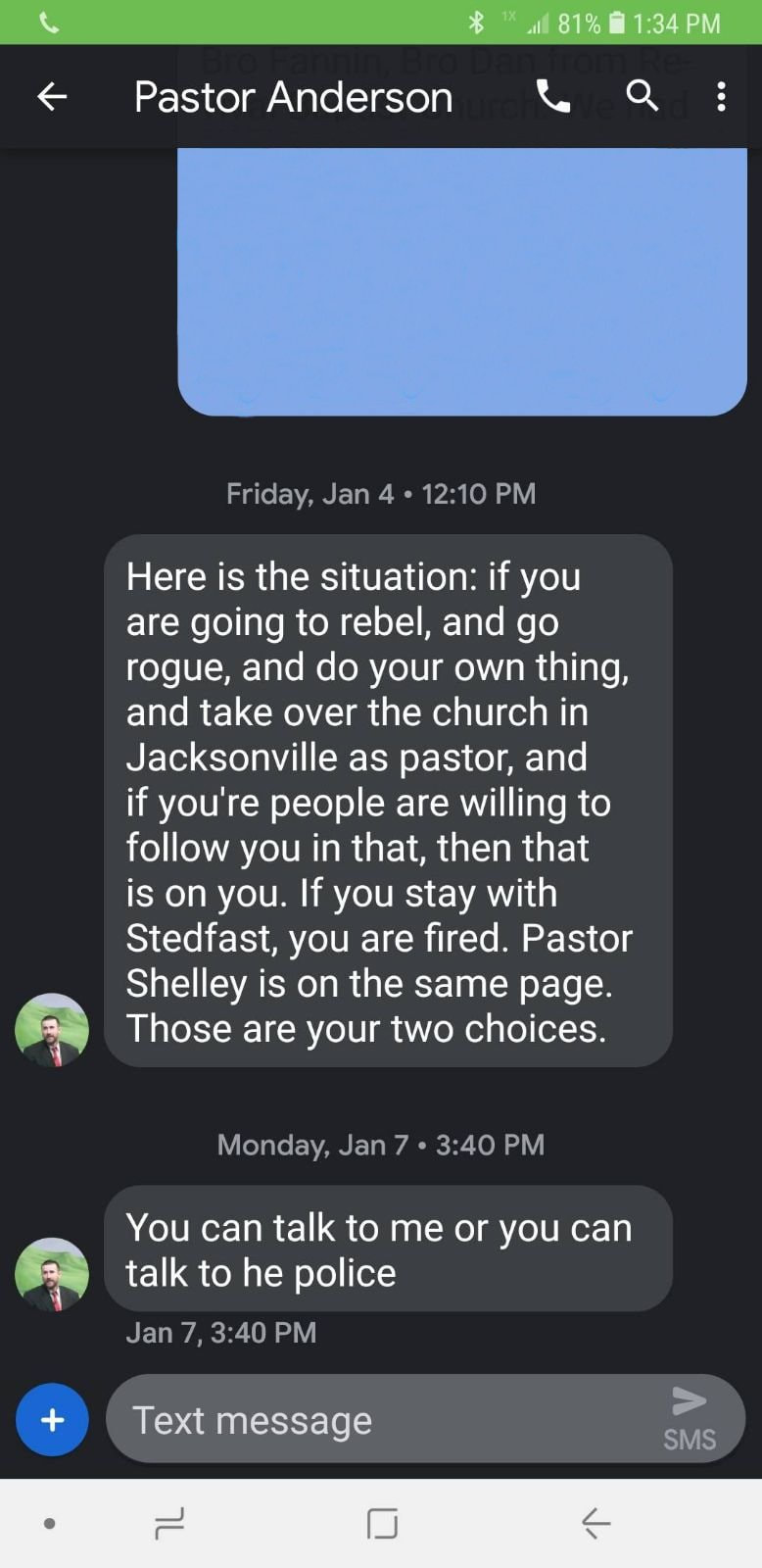



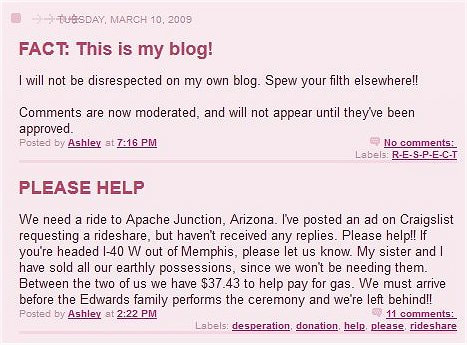



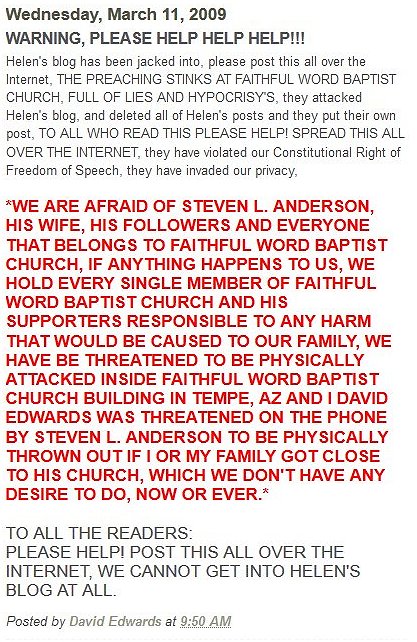


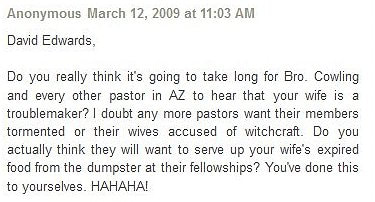













 RSS Feed
RSS Feed
